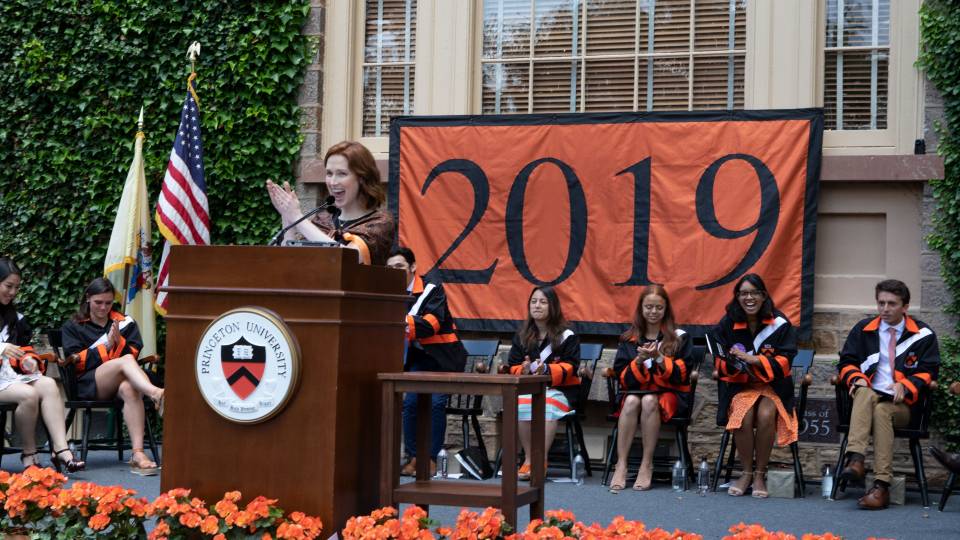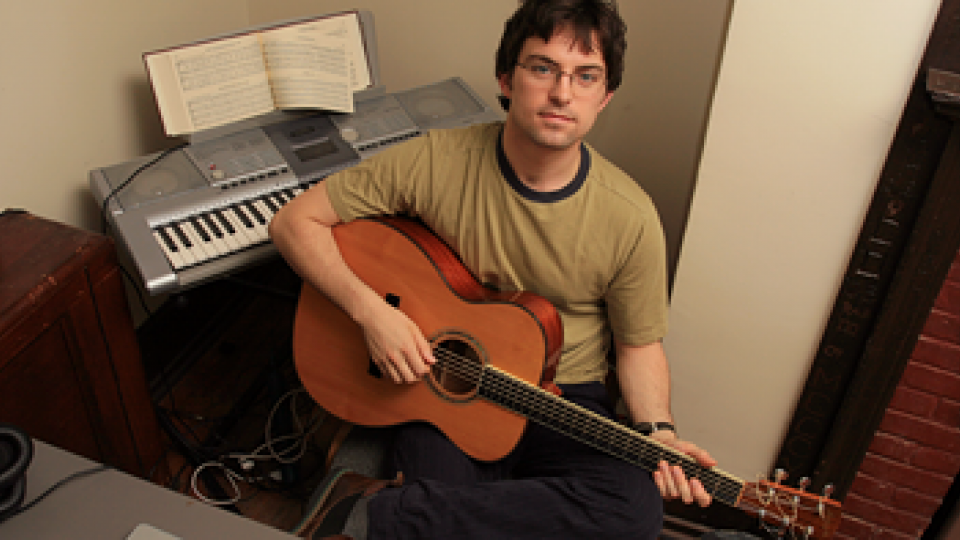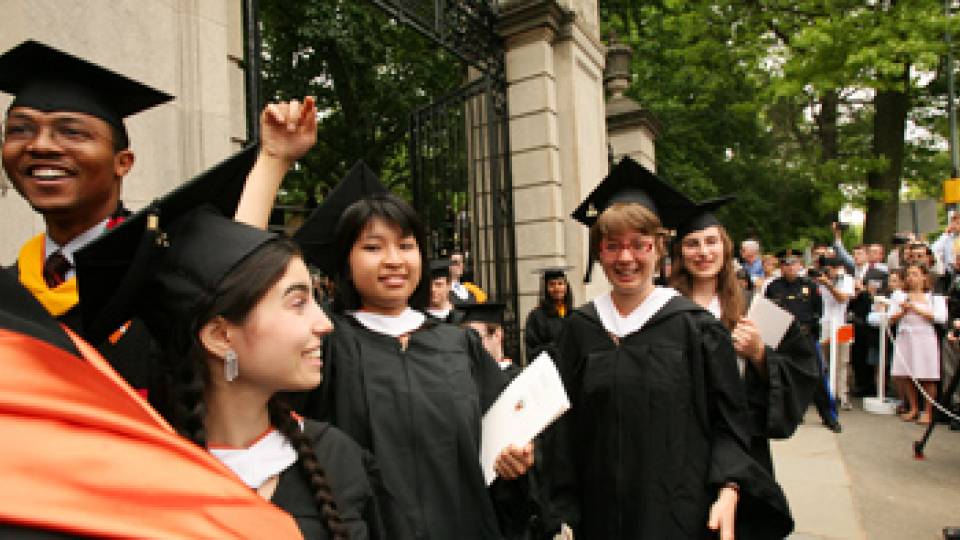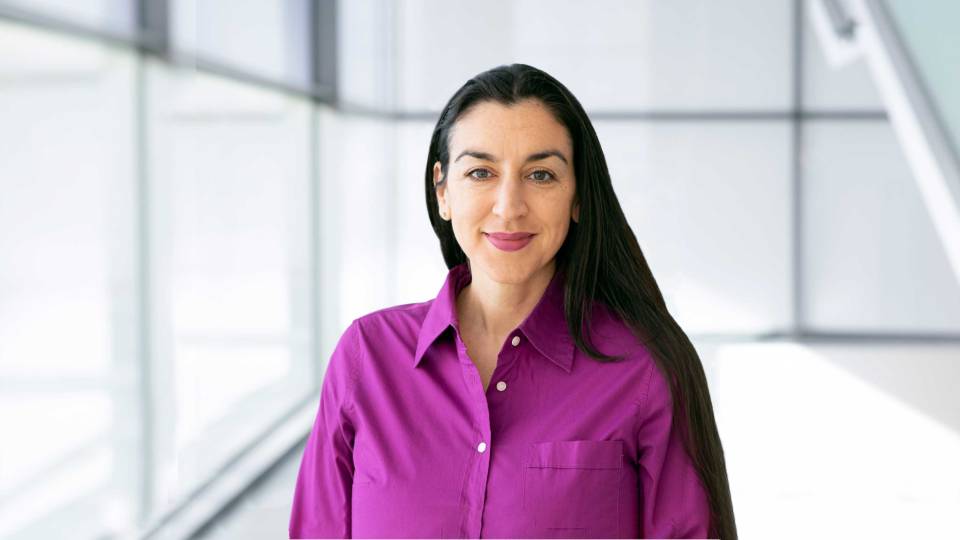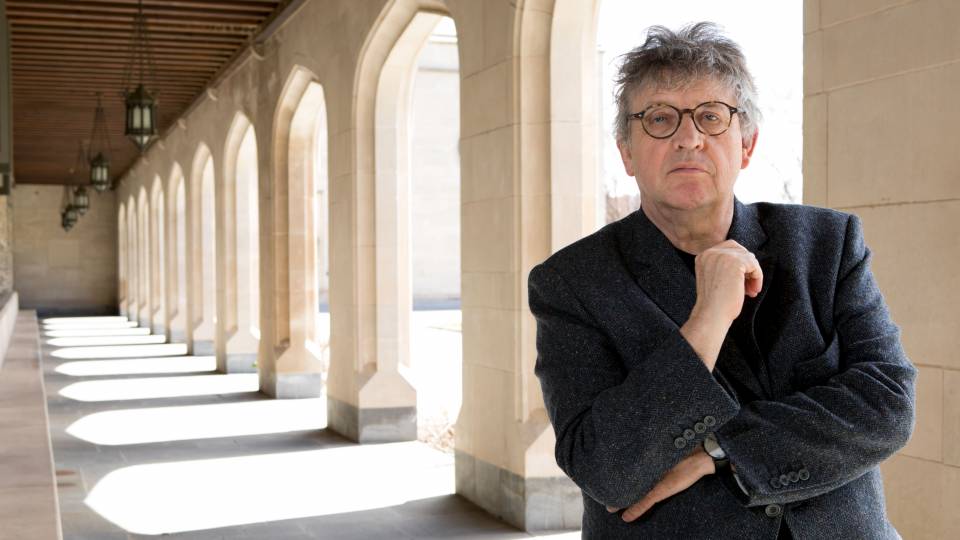Delivered by Chris Douthitt
Commencement
June 6, 2006
Princeton University Class of 2006
I want to begin by saying that I never, until about six weeks ago when they told me, pictured myself standing here and speaking before this audience. I consider it one of the greatest privileges of my life. And thank you to the class of 2006, and to the faculty and administration for this honor.
Frankly, though, this honor frightens me. Events like this tend to bring out the worst in my personality -- and as my friends would tell you, I get a little humorless and grave. When I was in high school I got to give a valedictory address, and I started out by telling everyone that, since we were all about 18 years old, and since everyone lives about 77 years in the United States, we could really all consider ourselves about 23 percent dead, give or take a few. I was really into the idea at the time, but I don't think the audience appreciated hearing it as much as I appreciated telling them.
Today we are gathered for a similar ceremony, and, as time would have it, four or five years have ticked away since the end of high school. Now everyone's a little older but also a little wiser. But I don't want to repeat my role as some sort of fake insurance actuary -- I've already learned in the past four years that there are better ways to get people's attention than telling them they're going to die -- but I do want to do right by the occasion, and today's occasion, or at least a good portion of it, feels as weighty to me as anything I've ever known. I think for all of us, graduating from Princeton marks a moment of transformation that will continue to reveal its significance to us as we live out the rest of our lives, all the way until the end. Even without the interpretive aid of a few made-up statistics, it should be plain for anyone to see that this graduation ceremony is a mixture of celebration and holy dread, with all its sunny prospects streaked by moving shadows of uncertainty. Today is the commencement of our new lives in the wider world, and, at least to me, that brings on its own little heart attack of excitement and fear.
Just look at us. I think I can say without bragging that today we stand together as one of the most capable, intelligent groups of people anywhere in the world. And it blows my mind to be a part of it. We've spent nearly half a decade together in the best University in the country, learning how to think for ourselves, how to criticize, how to solve problems for the greater good. Now we're ready to apply that education to the rest of our lives. And to that end, Princeton has been an incredible incubator: It has indulged our minds, and our minds have grown. Perhaps more importantly, it has kept us nestled away from the intellectually toxic culture of our time. This culture respects power more than ability, it respects answers more than inquiry and it respects naked opinion more than nuance. We should be grateful that Princeton has given us the safety to immerse ourselves in a rich suspension of people and ideas so that we could develop our intellect and our character uninterrupted. I think we should regard this moment of graduation, therefore, as a crowning moment, not just in the sense that we have achieved much in our time at Princeton, but in consideration of the more arcane sense of the word "crowning" that refers to the first moments of birth: Today we are delivered from this amniotic environment of campus life, vulnerable and untested, into a world that mostly reasons backwards. Let's remember that the receptiveness that we have to our lives right now is a beautiful and potentially catastrophic thing, so that when our surroundings try to change us, we know that we will always have the power to push back and change our surroundings.
Now, I have a friend back home in Spokane who once told me that he once read somewhere that someone once said that the people in history who have truly changed the world all made the decision to become world-changing people by the time they were 25, or 23, or some uncomfortably low number like that. Now factually speaking, there's no way this is true, but as a concept, for us, a group of people at a decisive age, I find it terribly compelling. We are leaving behind not only the careful structure of campus life, but also the broader phase of our lives marked by a careful adherence to structure. For the most part, we students have only known time in two divisions -- school and summer -- and we've always had a neat latticework of expectations and rewards to fit over the surfaces of our day-to-day existence. This school structure has allowed us to grow and flourish, but it has always been external to who we are as people, and to what we might want out of life. Graduating from college traps us in an exhilarating and terrifying moment: On the one hand, we finally have the freedom to choose for ourselves the rhythms and the priorities that will guide us through life. On the other hand, the burden of commitment is now upon us, and it will always be easier to adopt someone else's idea of what life should be than to formulate our own. Of course, there's no arbitrary cut-off age that renders the rest of our decisions impotent -- time is usually more forgiving than I think we would allow it to be. But we also shouldn't wait for courage to appear out of nowhere. Let's recognize our loves and passions and values, and have those determine what structure our lives take on, and not the other way around. I think this is the choice that will make all the difference in the world.
Now I'm not saying that I really have any answers here -- after all, I was a music major and I spent most of my time wearing headphones, hoping nobody would bother me with this kind of thing. But, while I was writing my thesis, I kept learning a lesson over and over again, as I'm sure many of you did, that I think relates to this moment of mixed emotion. You see, I came into the music department as someone mostly interested in writing songs, and for my thesis I got to write three songs and arrange them and perform them with a band I put together. The process went kind of like this. First Paul Muldoon, who advised me on the lyrics, would tell me, "Find good material and stick with the language of the material. Quit trying to write it into a song." Then Dan Trueman, who advised me on the music, would tell me, "Find the tunes and instruments and arrangements that will clarify the material that you have in the words." Finally, David Kellett, my voice teacher, would tell me, "Your job as a singer is to find the material that's already there in the words and the notes, and to make it come alive as music." By the end, what I had to say in my songs had a lot more to do with what lay dormant in the material I chose to write about at the beginning of the process than with how willfully I tried to manipulate this material later.
For the members of the class of 2006, I can think of no more relevant wisdom than to find whatever it is that constitutes the source material of your life, and to keep extracting that material throughout the years. We are about to walk out of those gates and into adulthood in a world that keeps shifting underneath our feet, so we must be able to distinguish for ourselves between the surface and substance of who we are. Personally, I'm glad I can count Princeton among the experiences that have changed the substance of my life undeniably for the better, and I hope you can, too. And, please, before too many years tick by again, let's all remember that we are young. I know, this is Princeton, and there are plenty of 57-year-old men trapped in 22-year-old bodies out there. But let's all have the presence of mind to do stupid, bold things with our lives, and to never take ourselves so seriously that we can't toss everything we've learned out the window if the time calls for it. Congratulations, Princeton University class of 2006, on your crowning accomplishment, thank you for your friendship, and good luck with the next 69.444 percent of your lives
